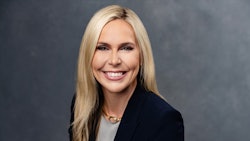
Editors' Picks
Cannabis Seeds Are Federally Legal: What Now?

In January 2022, the DEA acknowledged, somewhat formally, that cannabis seeds are federally legal, regardless of what sort of chemical profile might arise (e.g., legal hemp or THC-rich cannabis). The seeds are protected under the 2018 Farm Bill provisions. This news opened the door to public discussions of interstate commerce in the cannabis seed market. What was once a hush-hush marketplace was now, slowly, coming into the clear.
Except it’s never that simple in cannabis, is it?
From our initial reporting on the DEA’s actions, we’ve spent months discerning an actual legal position on this subject—and trying to elucidate what, precisely, is going on with cannabis seeds and the DEA (and the FDA and the various state regulatory authorities and, oh, say, the DOJ). It’s not simple at all, but we tried to cover the nuances of this topic in a webinar back in February 2023.
We hosted an esteemed panel: Shane Pennington, counsel of Vicente Sederberg LLP, who received the letter from the DEA in response to his inquiry on seed legalities; Jay Wexler, professor of law at Boston University, who has a focus in cannabis as well as constitutional law; Rick Campanella (MrSoul), the CEO of Brothers Grimm Seeds, which recently battled with the USPS over confiscated seeds and won; and Tom Wilson, owner of MoneyTree Genetics, which has opened a retail storefront selling seeds in Chicago.
Check it out and drop a line with any lingering questions you still have about this strange yet optimistic corner of the cannabis industry.
- Eric Sandy

Washington, D.C., has made moves to broaden access to cannabis in recent years, but it certainly hasn’t been easy, as Cannabis Business Times Digital Editor Eric Sandy alludes to in this “Beyond the Show” podcast episode featuring former regulator Rafi Aliya Crockett.
Despite district voters passing an initiative in 2014 to legalize adult-use cannabis via a 70% majority, legislation sponsored by U.S. Rep. Andy Harris, R-Md., has stripped D.C.’s power to tax and regulate commercial sales for the better part of the past decade. This congressional meddling, dubbed as the “Harris Rider” in this instance, comes from Congress’ authority to approve the district’s budget—one that’s made of up of tax dollars collected locally.
“This isn’t federal money. This is local money. And Congress gets to tell us what we can and can’t do with that money,” Crockett tells Sandy. “And they routinely use that power to just usurp the will of D.C. residents by overturning our democratically enacted legislation.”
Crockett served four years as commissioner of the D.C. Alcoholic Beverage and Cannabis (ABC) Board, notably overseeing the district’s medical program transition from the Department of Health to the ABC Administration.
In this podcast, Crockett and Sandy cover the district’s effort to broaden licensing opportunities as a means to invite the flourishing unregulated market into the regulated space after “cannabis gifting” took hold following the Harris Rider. They also touch on the city’s 2022 legislation allowing adults 21 and older to self-certify as cannabis patients—including tourists—in order to access medical dispensaries as a workaround to the Harris Rider.
Crockett also highlights what led up to writing and producing her “Higher Power” documentary film that looks through the lenses of Black Washingtonians trying to navigate a gray space while fighting to enter the legal cannabis industry—revealing a stark reality of 700,000 disenfranchised American citizens.
“As we know, there’s less than 2 percent Black ownership nationwide, but D.C. is very unique in that we have close to 30 percent Black ownership here,” Crockett tells Sandy. “So, I thought it would be great to make a film highlighting this. We wanted to show those success stories instead of the story that we are being left out of this regulated industry, because that just becomes kind of a self-fulfilling prophecy.”
In addition to her commissionership, Crockett is treasurer for the Cannabis Regulators of Color Coalition, which focuses on equity-centered regulation, establishing industry best practices, and finding industry standardization all can agree to. But what does centering truly mean when regulations are written and social equity licenses are issued, yet the recipients don’t have the means to operate?
“If none of them are able to open their doors, then we’re not doing our job, and we're not doing right by the individuals who we claim we want to make whole again,” says Crockett, who dives further into this topic and a heck of a lot more.
- Tony Lange

Early in the year, CBT Associate Editor Tony Lange spent some time exploring the day-to-day operations of Buckeye Relief, a Northeast Ohio-based medical cannabis cultivator and processor. The resulting four-part video series, “Tricks of the Trade,” offers in-depth, “how-to” demonstrations led by industry professionals.
In the first installment, Buckeye Relief Executive Chef Marc London and Kitchen Production Manager Emily Rollo take Lange behind the scenes of their chocolate infusion process, which starts with a fine chocolate and uses a clean distillate that the team describes as “odorless and tasteless.”
The second episode features Buckeye Relief Packaging Manager Bret Bruening and Assistant Packaging Manager Zach Zupancic demonstrating how to dial in the process of filling vape cartridges. The duo discusses the process on their Thompson Duke automatic filling machine and point out a few tricks along the way.
In the third installment of “Tricks of the Trade,” Lange catches up with Buckeye Relief VP of Cultivation Matt Kispert, Cultivation Director Tyler Bracken, and Irrigation and Controls Director Zack Folino in the grow room as they defoliate a canopy.
In the fourth and final episode of the series, Buckeye Relief Post-Harvest Director Nathan Ferencak and Freeze-Drying Technician Neil Kopchak show Lange their craft process of freeze-drying cannabis flower. The novel process uses liquid nitrogen in a cryogenic technique that includes speed and control for a fresh-frozen flower that is preserved immediately after harvest.
- Melissa Schiller

I was driving south on Interstate 25 past Colorado Springs on my way to visit a greenhouse cultivator in Pueblo, Co., when I first listened to the conversation with Josh Malman, VP of cultivation for Jushi Holdings Inc., and Eric Sandy, CBT digital editor, as part of Cannabis Business Times Conference’s Beyond the Show podcast.
I was struck by Malman’s honesty when reflecting on the economic challenges facing Jushi and the overall cannabis market and how the MSO is tackling industry-wide problems like price compression.
“This year is really focused on gaining efficiencies where we can, be it through automation of certain processes, really taking a hard look at staffing levels and productivity levels of our staff at every process throughout the cultivation cycle,” Malman told Sandy in March. “Really looking at our top-performing facilities, seeing what’s gone right there and training, and retraining and retraining, and being sure we’re sharing best practices.
“Working for an MSO, you think Jushi has one process, and it just happens. I wish it were that easy, and we’ve found it’s not always that easy. You’ve got local leaders that have to make snap decisions, and they do it at the best of their ability.”
Malman also reflected on his decade-plus career in cannabis, how despite the shock that many felt this year with the economic fallout from cultivators and dispensary owners from Oregon to Michigan to Massachusetts, he wasn’t necessarily surprised. I happened to be on a trip to talk to Colorado growers, who pioneered the adult-use market, about how they were managing significant price compression, tax pressure and declining sales in one of the hardest hit states, and his comments underscored the fact that the industry has navigated and come out of tough times before.
“I started in Colorado in 2010, and I’ve seen a lot of chapters of this regulated market. And myself and some of my colleagues at Jushi who have been in the industry quite a while, we feel fairly weathered. We’ve seen how rapidly state regulations change, business plans, construction schedules, really all of it,” he said. “I wouldn’t say that anything this year is really surprising or mind boggling to me. Maybe that’s a jaded take on it ... those of us who have been in it as long as we have, have learned to weather the storm. To be successful, we have to be flexible in our business plans …[but trying] to lay out plans for the next five years and think you can stick to it without any deviations has proven wrong to us over and over again.”
- Michelle Simakis

This wasn’t the first time I've heard Lindsey Renner speak. She gave an extremely touching acceptance speech at the 2022 Cannabis Leadership Awards reception during that year’s Cannabis Business Times conference, and her story brought tears to my eyes. She has also spoken at the conference and joined the conference Advisory Board, sharing her wealth of insights after 15+ years in cannabis cultivation in California and five years in the adult-use market there. As the first enrolled tribal member to be licensed in California on Jan. 1, 2018, she also helps shine the light on issues facing Tribal Nations in cannabis.
Listening to her on the Beyond the Show podcast, interviewed by Eric Sandy, I was just reminded, once again, of Lindsey’s strength and perseverance, her do-it-all attitude that never seems to wane, as she runs vertically integrated Native Humboldt Farms while also “consulting with Tribal Nations to help write local and national ordinances to ensure the sustainable and successful rollout of the tribal cannabis market,” as Sandy explained.
I have been fortunate to have had quite a few conversations with Lindsey at this point, and every time I talk with her or hear her speak, I am inspired by her dedication to the cannabis plant, to regenerative, or what she calls Indigenous, farming and to working to advance Indigenous cannabis throughout the U.S., as well as by her connection to her ancestors through the land they previously inhabited--where she now farms--and her desire to help other cannabis business owners, whether through constantly sharing business advice, instructing at Cookies U or serving on the Cannabis Business Times Conference advisory board and speaking on its educational sessions.
This podcast episode just stood out to me as capturing the essence not only of Lindsey and her passion and dedication to this industry, but also of what we do here at CBT: We look back at legacy cultivators, we look ahead to helping businesses of all types, sizes and origins survive the tumultuous path ahead of us in this ever-changing industry, we delve into cultivation and its many forms, and we focus on people, especially those making a difference in their corners of the industry and on the industry as a whole.
It’s worth taking the opportunity to listen.
- Noelle Skodzinski























